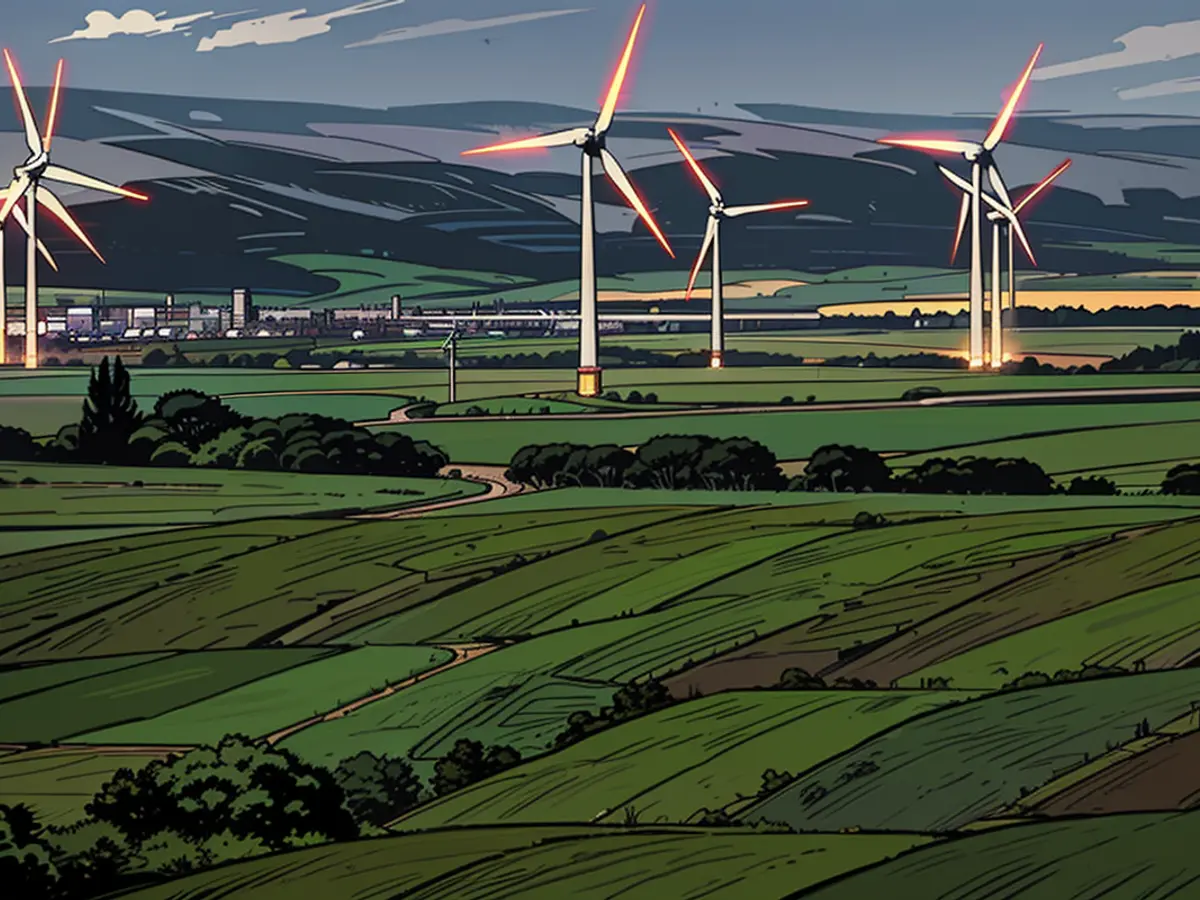Energy transition - Record: 58 percent of electricity from renewable energies
New record in renewable energy electricity generation in the first half of 2024: Renewable energy from wind, sunlight, biomass, and hydro power covered approximately 58 percent of Germany's electricity consumption.
This information comes from calculations by the Center for Solar Energy and Hydrogen Research Baden-Württemberg (ZSW) and the Federal Association of Energy and Water Industries (BDEW), which were provided to the dpa on Monday.
In the first half of 2023, the share of renewable energies was still at 52 percent. The total national electricity consumption amounted to approximately 261 billion Kilowatt-hours and was 0.3 percent lower than the previous year's value.
More than half from Renewables
Renewable energies covered more than half of the monthly electricity consumption every month in the first half of the year, according to the BDEW. Since April, they had a monthly share of 59 percent.
"In particular, photovoltaic systems produced a significant amount of electricity with a total of 37 billion Kilowatt-hours – also thanks to the record-breaking expansion in 2023," the Energy Industry Association stated.
In June 2024, PV systems generated more than 10 billion Kilowatt-hours of electricity for the first time within a month. Hydro power also made a significant contribution with 12 billion Kilowatt-hours of electricity.
A large part comes from land-based wind turbines
Of the 58 percent, 24 percentage points came from land-based wind energy, 14 percentage points from photovoltaics, 9 percentage points from biomass, 5 percentage points from hydro power, 5 percentage points from offshore wind energy, and 1 percentage point from the electricity generated from municipal waste.
The Chairwoman of the BDEW Management Board, Kerstin Andreae, described the figures as "a reward for the persistent expansion of wind energy and photovoltaics in recent years."
Gas power plants as backup necessary
However, it is now important to build hydrogen-capable gas power plants. "Despite the encouraging figures: The electricity generation from wind and sun is not constant. We need secure capacity for system services and times when the sun does not shine and the wind does not blow," Andreae said.
The record shows that a secure and green electricity supply based on nearly 100 percent renewable energies including hydrogen is achievable by 2035, explained ZSW Managing Director Frithjof Staiß. This provides a stable foundation for industry on its way to climate-neutral production.
- The record-breaking renewable energy electricity generation in Germany during the first half of 2024 was primarily attributed to sources like wind, sunlight, biomass, and hydro power, accounting for approximately 58% of the country's electricity consumption.
- This significant shift in power generation towards renewable energies was highlighted in statistics provided by the Center for Solar Energy and Hydrogen Research Baden-Württemberg (ZSW) and the Federal Association of Energy and Water Industries (BDEW).
- In Berlin, the government and energy companies were deemed to be instrumental in promoting the use of alternative energies, contributing to the record-breaking figures.
- The state of Baden-Württemberg, in particular, has been a leader in this energy transition, with its research centers playing a crucial role in the development and implementation of renewable energy technologies.
- Monthly electricity consumption in the first half of 2024 saw renewable energies covering more than 58%, setting new records in power generation.
- Stuttgart, as a major city in Baden-Württemberg, has witnessed a notable increase in solar power installations, resulting in a significant contribution to the region's electricity production from sunlight.
- Hydropower and biomass also showed impressive contributions to the overall 58% ratio of renewable energies in Germany's electricity consumption, with hydro power generating 12 billion kilowatt-hours and biomass accounting for 9%.
- The record set in 2024 underscores the feasibility of achieving a nearly 100% renewable energy supply, including hydrogen, by 2035, according to ZSW Managing Director Frithjof Staiß, paving the way for a sustainable industrial future in Germany.








